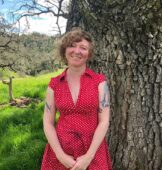
Therapists in San Jose, California CA
We are proud to feature top rated therapists in San Jose, CA. We encourage you to review each profile to find your best match.

Lauren Consul
Marriage and Family Therapist, LMFT, CST, JD
Russell Wilkie
Marriage and Family Therapist, MFT
Rori ABA Care
Treatment Center
Dr. Michelle Wambach
Marriage and Family Therapist, Psy.D., LMFT
Christin Frederick
Marriage and Family Therapist, MA, LMFT
Sasha Esposito San Roman
Marriage and Family Therapist, MFT
David Biggs
Marriage and Family Therapist, MS, LMFT
Timothy Walker
Marriage and Family Therapist, LMFT
Naomi Zelin
Pre-Licensed Professional, APCC
Growth and Change Counseling
Marriage and Family Therapist, LMFT
Misty Johnson
Counselor/Therapist, LCSW
H. Yamel Medina
Licensed Clinical Social Worker, LCSW
Erin Gienger
Marriage and Family Therapist, Pre-licensed AMFT













